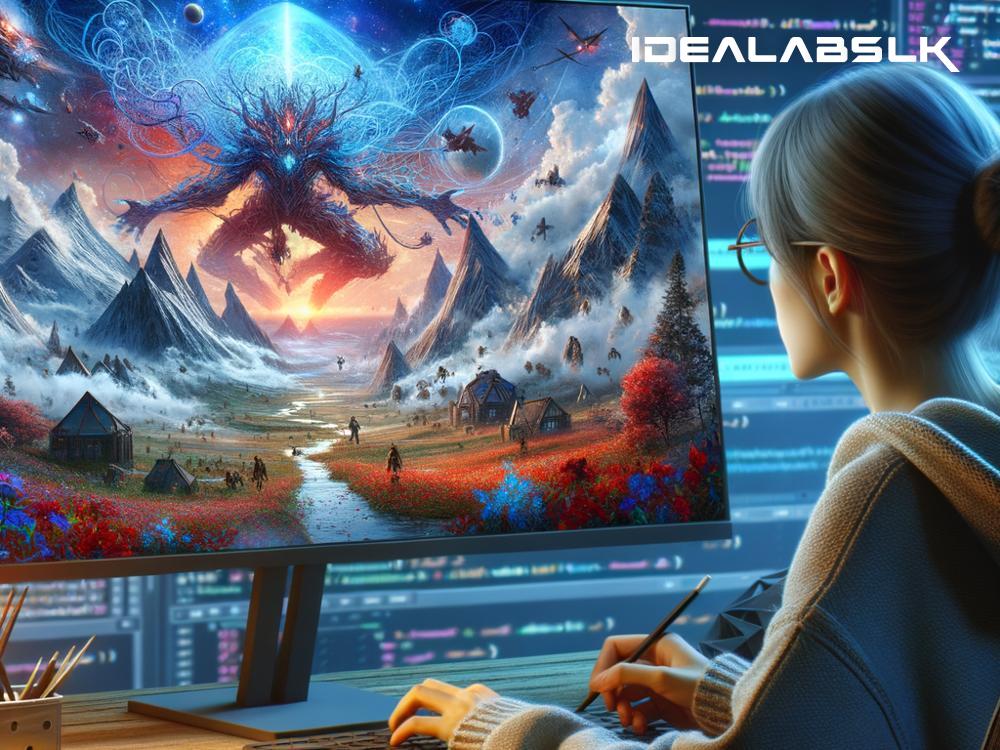AI-Generated Content and the Future of Open-World Game Design in 2025
The gaming world is always evolving, with new technologies pushing the boundaries of what's possible in virtual experiences. As we look ahead to 2025, one of the most exciting developments on the horizon is how Artificial Intelligence (AI) is set to reshape the landscape of open-world game design. This article explores the potential impact of AI-generated content on these expansive digital playgrounds, highlighting how these advances could revolutionize the way we play and create.
A World without Limits
Open-world games offer players vast environments to explore, filled with quests, characters, and stories. Traditionally, these elements are meticulously crafted by teams of developers over several years. However, AI-generated content promises to accelerate this process, enabling the creation of larger, more dynamic worlds. Imagine stepping into a game where every mountain, forest, and city is unique every time you play, or where stories and quests are generated on the fly based on your actions. This could be the future of gaming in 2025, thanks to AI.
Tailored Adventures for Every Player
One of the most intriguing aspects of AI in game design is personalized content. With AI, games can adapt to your play style and preferences, offering challenges and stories that are tailored just for you. If you love solving puzzles, the AI can create intricate mysteries for you to unravel. Prefer action? The game might spawn more combat encounters. This personal touch not only enhances engagement but also ensures that each player's experience is truly one-of-a-kind.
Breaking the Language Barrier
Language localization is a significant challenge in game development, often limiting the availability of games in different regions. AI-generated content could change this by offering real-time translation and localization, making games more accessible to a global audience. In 2025, players around the world might enjoy the same game simultaneously, each in their native language, breaking down barriers and fostering a more inclusive global gaming community.
Creating More Immersive Worlds
The detail in open-world games is crucial for immersion, but there's a limit to what human developers can create within time and budget constraints. AI can generate detailed environments and backstories for even the most minor characters, enriching the game world. This level of detail can make the game feel more alive, with each NPC (non-player character) you encounter having their own life story, making your interactions more meaningful and engaging.
The Challenge of Originality
While the benefits are considerable, there's a potential downside to AI-generated content: the risk of homogenization. If every game relies on similar AI tools for content generation, we might see a decrease in originality, with many games feeling too similar. Overcoming this challenge will require developers to use AI creatively, ensuring that each game retains a unique identity and offers a distinct experience.
Empowering Smaller Developers
One of the most promising aspects of AI in game design is how it levels the playing field for indie developers. Smaller studios, which traditionally lack the resources of larger companies, can leverage AI to create expansive, detailed worlds that would otherwise be beyond their reach. This democratization could lead to a surge in innovative, diverse games, enriching the gaming landscape.
Looking Ahead
As we approach 2025, the potential of AI-generated content in open-world games is both exciting and unprecedented. By automating the creation of environments, characters, and stories, AI can offer gamers more personalized, immersive experiences. However, developers must navigate the challenges of ensuring diversity and originality in their games. If successful, we could see a new era of open-world gaming that offers infinite possibilities and brings us closer to truly living within our digital worlds.
The convergence of AI and game design not only represents a technological leap but also a cultural one, where the stories we tell and the worlds we explore become more inclusive and boundless than ever before. As gamers and developers, the journey into this future promises to be as thrilling as the games it will birth, marking a new chapter in the evolution of digital storytelling.

